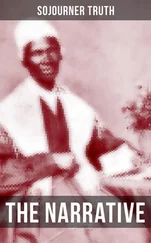“Why were you called in to see Katie?”
Coop looked wonderful on the stand. Not that I was in the habit of judging my witnesses on the way they filled out a suit, but he was relaxed and calm and kept smiling at Katie, something the jury could not help but notice. “To treat her,” he said. “Not to evaluate her.”
“What’s the difference?”
“Most of the professional psychiatrists who testify in court have been appointed to assess Katie’s mind for the value of the trial. I’m not a forensic psychiatrist; I’m just a regular shrink. I was simply asked to help her.”
“If you’re not a forensic psychiatrist, then why are you here today?”
“Because I’ve developed a relationship with Katie over the course of her treatment. As opposed to an expert who’s only interviewed her once, I believe I know the workings of her mind more thoroughly. She’s signed an agreement to allow me to testify, which I consider a strong mark of her trust in me.”
“What did your treatment of Katie involve?” I asked.
“Clinical interviews that grew more in-depth over a four-month period. I began by asking about her parents, her childhood, her expectations of pregnancy, history of depression or psychological trauma-your basic psychiatric interview, in effect.”
“What did you learn?”
He grinned. “Katie’s no run-of-the-mill teenager. Before I could really understand her, I needed to bone up on what it means to be Amish. As I’m sure everyone knows, the culture in which a child is raised dramatically impacts their actions as an adult.”
“We’ve heard a little about Amish culture. What, in particular, interested you as Katie’s psychiatrist?”
“Our culture promotes individuality, while the Amish are deeply entrenched in community. To us, if someone stands out, it’s no big deal because diversity is respected and expected. To the Amish, there’s no room for deviation from the norm. It’s important to fit in, because that similarity of identity is what defines the society. If you don’t fit in, the consequences are psychologically tragic-you stand alone when all you’ve ever known is being part of the group.”
“How did this contribute to your understanding of Katie?”
“Well,” Coop said, “in Katie’s mind, difference is equated with shame, rejection, and failure. For Katie, the fear of being shunned is even more deeply rooted. She saw it happen to her brother, in a very extreme case, and absolutely did not want that to happen to herself. She wanted to get married, to have children . . . but she’d always assumed it would happen the way it happened to everyone else in her world. Discovering she was pregnant with an English man’s child, and unwed-both glaringly against the Amish norm-well, it led right to being shunned, which was something her mind wasn’t equipped to handle.”
I was hearing him speak of Katie, but thinking of myself. My hand crept inside the jacket of my suit, resting over my abdomen. “What do you mean by that?”
“She had been brought up to believe that there was only one way to get from point A to point B,” he said. “That if her life didn’t march down that path or turn out as perfectly as she had expected, it was unacceptable.”
Coop’s words wrapped so tightly around me that breathing became an effort. “It wasn’t her fault,” I managed.
“No,” Coop said softly. “I’ve been trying to get her to see that for a while, now.”
The room narrowed, people falling away and sounds receding. “It’s hard to change the way you’ve always thought about things.”
“Yes, and that’s why she didn’t. Couldn’t. That pregnancy,” Coop murmured, “it turned her world upside down.”
I swallowed. “What did she do?”
“She pretended it didn’t matter, when it was the most important thing in the world. When it had the power to change her life.”
“Maybe . . . she was just afraid of taking that first step.”
A profound silence had blanketed the courtroom. I watched Coop’s lips part, I waited for him to absolve me.
“Objection!” George said. “Is this a direct examination, or As the World Turns?”
Shaken out of my reverie, I felt myself blush. “Sustained,” Judge Ledbetter said. “Ms. Hathaway, could you flip the channel back to The People’s Court?”
“Yes, Your Honor. Sorry.” I cleared my throat and deliberately turned away from Coop. “When Katie found out that she was pregnant, what did she do?”
“Nothing. She shoved the idea out of her mind. She denied it. She procrastinated. You know how it is when you’re a kid, and you close your eyes and think you’re invisible? Well, the same principle was at work. If she didn’t say out loud, ‘I’m pregnant’-she wasn’t. Ultimately, if she admitted to herself that she was pregnant, she would have to admit it to her church, too-confess publicly to her sins and be shunned for a brief time, after which she’d be forgiven.”
“Ignoring her pregnancy-that sounds like a deliberate decision.”
“It’s not, because she really didn’t have a choice. In her mind it was the only sure way to keep from being excluded from her community.”
“She couldn’t hide it when she went into labor. What happened then?”
“Quite obviously,” Coop said, “that denial mechanism broke down, and her mind scrambled for some other way to keep herself from admitting to the pregnancy. When I first met Katie, she told me that she felt sick at dinner, went to bed early, and remembered nothing until she woke up. Of course, the facts indicate that sometime during those hours, she had a baby.”
“That was the new coping mechanism-a memory loss?”
“A memory gap, due to dissociation.”
“How do you know Katie wasn’t dissociating from the minute she found out she was pregnant?”
“Because then she’d probably have multiple personality disorder. Anyone who fragments off her consciousness for that many months would develop another identity. However, it is possible to split off one’s consciousness to survive brief periods of trauma, and for Katie, that’s entirely consistent.” He hesitated. “It’s less important to understand which defense mechanism she used, and whether it was conscious or unconscious. For Katie, it’s more crucial to understand why she felt a need to protect herself from the knowledge of pregnancy and birth, period.”
I nodded. “Did she eventually recall what happened during and after the birth?”
“To a point,” Coop said. “She remembers being afraid to get blood on the sheets of her bed. She remembers going to the barn to give birth, and being incredibly afraid. She remembers cutting the cord and tying it off. She knows that she picked up the infant and cuddled him. Quieted him.” He held up his pinkie. “She remembers giving him her finger to suckle. She closed her eyes, because she was so tired, and when she woke up the infant was gone.”
“Based on your knowledge of Katie, what do you think happened to that infant?”
“Objection,” George said. “This calls for speculation.”
“Your Honor, every witness the prosecutor put on speculated about this issue,” I pointed out. “As Katie’s psychiatrist, Dr. Cooper is far more qualified than anyone else to comment on this.”
“Overruled, Mr. Callahan. Dr. Cooper, you may answer the question.”
“I believe that the baby died in her arms, for whatever medical reasons premature infants die. Then she hid the body-not well, because she was acting like a robot at the time.”
“What makes you believe this?”
“Again, it goes back to being Amish. To bring an illegitimate baby into the Amish community is upsetting, but not ultimately tragic. Katie would have been shunned for a brief time, and then accepted back into the fold, because children are treasured by the Amish. Eventually, after the stress of birth, Katie would have had to face the fact that she’d borne an illegitimate child, but I believe she’d have been able to handle it once the baby was alive and there and real to her-she loved children, she loved the baby’s father, and she could have rationalized shunning on the grounds that something beautiful had come from her mistake.”
Читать дальше












